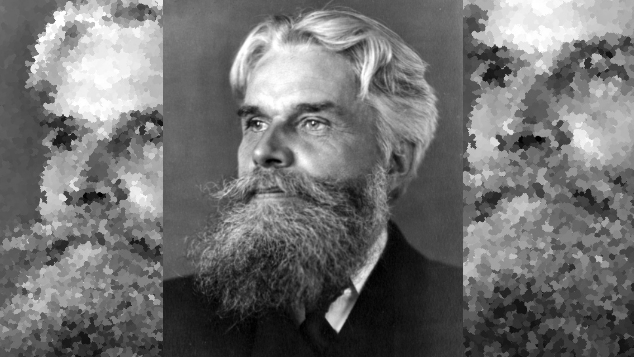Havelock Ellis was one of the first researchers into human sexuality
Henry Havelock Ellis co-wrote the first medical text book in English that explored homosexuality and published a series of works that explored sexuality and gender, including people who were transgender.
He is credited with introducing the notions of narcissism and autoeroticism which were later taken up by psychoanalysis. Ellis was also a supporter of eugenics and explored psychedelic drugs by experimenting on himself.
Born in Croydon, which is now part of London, in 1859 he saw a lot more of the world than other youngsters of his time. His father was a ship’s captain and when he was just seven years old he accompanied his father on a voyage that took in around the world visiting Sydney in Australia, Callao in Peru and Antwerp in Belgium.
After finishing his education he returned to Australia and became a master at a private school, when they discovered he didn’t have the required qualifications he was fired from the position. In his autobiography he described his stint at the school as ‘short ad inglorious”.
He went on to become a private tutor for family in rural New South Wales. He went on to hold several teaching positions before returning to England, having lived in Australia for four years.

Here he decided to take up the study of sex, and undertook medical training, and also earned some extra money editing a collection of lesser known Elizabethan dramas that was published in 1887. Around this time he other social activists including Eleanor Marx, Edward Carpenter and George Bernard Shaw.
In 1887 he co-authored, with John Addington Symonds, the book Sexual Inversion which is recognised as one of the first English language works to discuss homosexuality without it being classified as a disease or moral failure.
Ellis is also believed to have sparked the concepts of autoeroticism and narcissism which were later developed by Sigmund Freud. He also studied what today would be recognised as people who are transgender, and recognised that sexuality was different to gender identity.
Despite being a researcher in sexuality, Ellis himself remained a virgin and had little interest personally in sex. When he was 32 he married women’s rights activist, the writer Edith Lees. His wife was open about being a lesbian and the couple lived separately. After his wife died in 1916 he had relationships with other women and became sexually active.
Havelock was also a believer in eugenics, and part of his work proposes that homosexuality is more prevalent in what he viewed as lesser races and classes of people.
He argued that homosexuality was not something that Eugenicists needed to be concerned with, believing that if homosexuality was accepted in society, same-sex attracted people would no longer be forced into marriages, and would disappear once they were no longer having children.
Ellis passed away on the 8th of July 1939, he was 80 years old.
OIP Staff, this post was first published in 2022 and has been updated.





